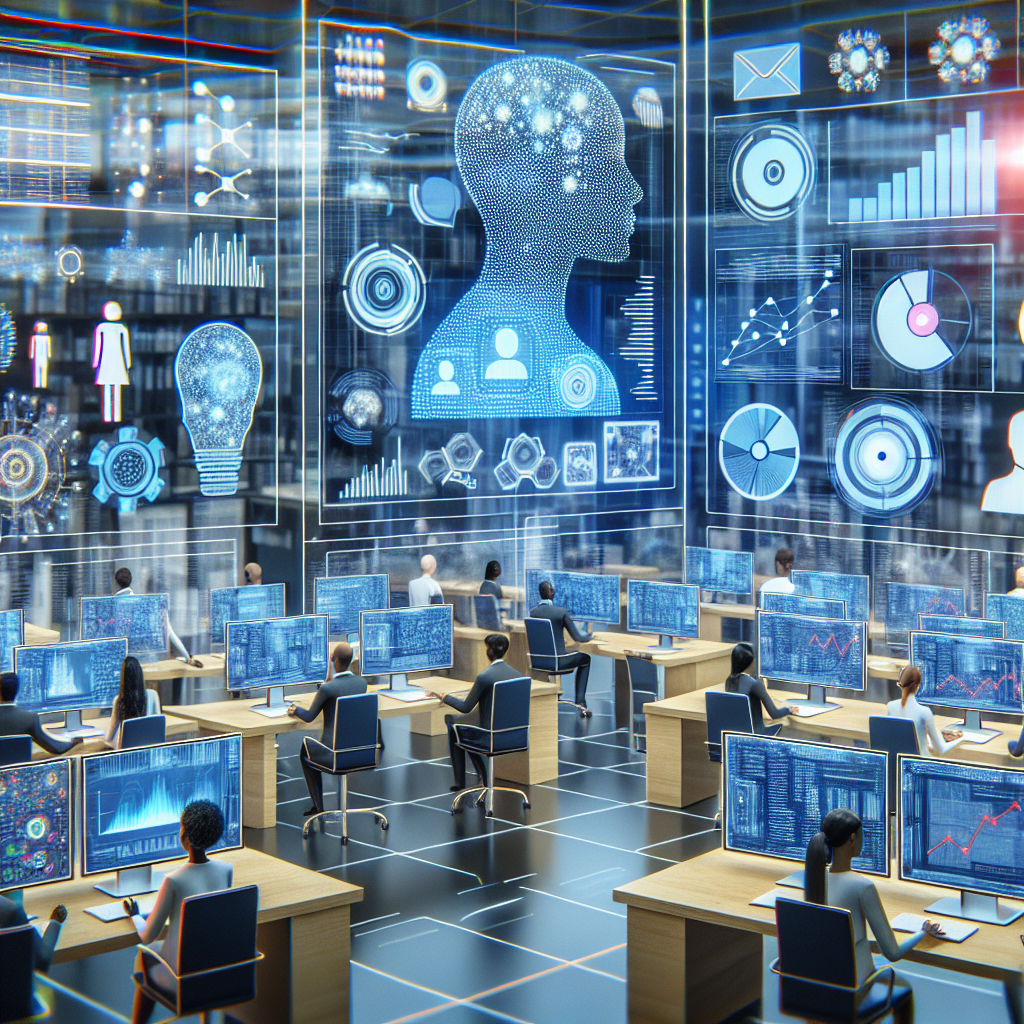AI, or artificial intelligence, is a rapidly growing field that has the potential to revolutionize the way governments make decisions. From improving public services to enhancing national security, AI is being utilized by governments around the world to make more informed and effective choices. In this article, we will explore how governments are using AI for better decision making and examine some of the key benefits and challenges associated with this technology.
One of the primary ways that governments are leveraging AI for decision making is through predictive analytics. By analyzing vast amounts of data, AI algorithms can identify patterns and trends that humans may not be able to see. This can help governments predict future events, such as outbreaks of disease or natural disasters, and make proactive decisions to mitigate their impact.
For example, the city of Barcelona, Spain, has implemented an AI system to predict when and where crimes are likely to occur. By analyzing data on past crimes, weather conditions, and other factors, the system can help police allocate resources more effectively and prevent crime before it happens.
AI is also being used to improve public services and enhance citizen engagement. For example, many governments are using chatbots powered by AI to provide information and support to citizens online. These chatbots can answer common questions, provide personalized recommendations, and even help citizens navigate complex government services.
In addition, AI is being used to improve healthcare delivery and public health outcomes. For example, the UK government has partnered with AI companies to develop algorithms that can predict which patients are at risk of developing certain diseases. By identifying at-risk individuals early, healthcare providers can intervene sooner and potentially prevent serious health issues.
Furthermore, AI is being used to enhance national security and counterterrorism efforts. Governments are using AI algorithms to analyze social media data, monitor online communications, and identify potential threats. This can help security agencies stay one step ahead of criminals and terrorists and prevent attacks before they occur.
While there are many benefits to using AI for decision making, there are also some challenges and concerns that need to be addressed. One of the main challenges is ensuring that AI algorithms are fair and unbiased. Because AI systems learn from data, there is a risk that they may perpetuate existing biases or discriminate against certain groups. Governments must take steps to ensure that AI systems are transparent, accountable, and ethical in their decision making.
Another challenge is the potential for AI systems to be hacked or manipulated. As AI becomes more sophisticated and integrated into government systems, there is a risk that malicious actors could exploit vulnerabilities in the technology to undermine national security or manipulate decision making. Governments must invest in cybersecurity measures to protect AI systems from attacks and ensure their reliability and integrity.
In conclusion, AI has the potential to transform the way governments make decisions and deliver services to citizens. By leveraging the power of AI algorithms, governments can analyze vast amounts of data, predict future events, and make more informed and effective choices. While there are challenges and concerns associated with AI, the benefits of using this technology for decision making are clear. As AI continues to evolve and improve, governments must adapt and embrace this technology to stay competitive and serve the needs of their citizens.
FAQs:
Q: How is AI being used by governments for decision making?
A: Governments are using AI for predictive analytics, improving public services, enhancing healthcare delivery, and national security efforts.
Q: What are some benefits of using AI for decision making?
A: Benefits include improved efficiency, better accuracy in decision making, enhanced public services, and enhanced national security.
Q: What are some challenges associated with using AI for decision making?
A: Challenges include ensuring fairness and unbiased algorithms, protecting against hacking and manipulation, and addressing ethical concerns.
Q: How can governments ensure that AI algorithms are fair and unbiased?
A: Governments can ensure fairness by monitoring and auditing AI systems, using diverse and representative data sets, and implementing ethical guidelines for AI development and deployment.

